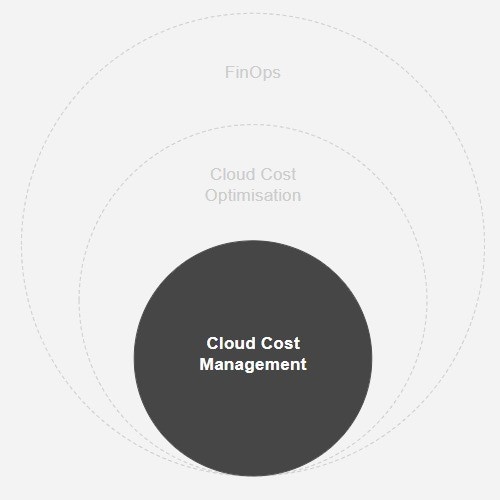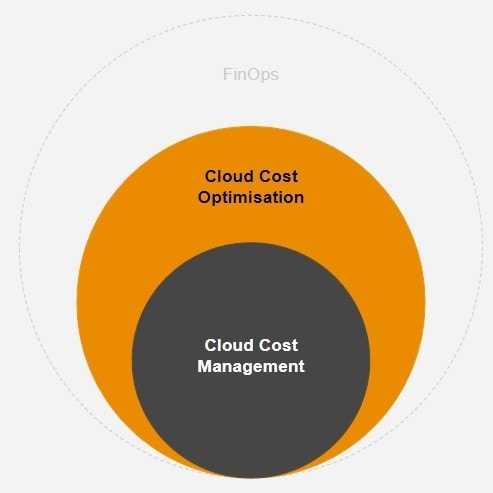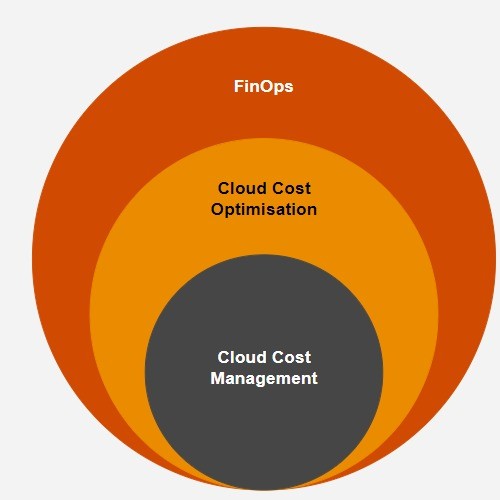
How FinOps drives innovation in the cloud
The transition to cloud-based solutions is one of the most significant technological trends of the past decades. More and more organisations, ranging from small startups to large multinationals, are deciding to move their IT infrastructure to the cloud. FinOps, or Financial Operations, is a relatively new but crucial concept in managing cloud costs.

Optimise cloud spending and drive innovation
Many organisations that have moved to the cloud face a lack of insight into their cloud costs and challenges in managing them. This can reduce the benefits of cloud investments and limit the ability to embrace new technologies such as artificial intelligence (AI) or sustainability initiatives. It is important to align cloud spending with the added value for the organisation. However, the complex nature of cloud services and pricing models can lead to suboptimal decisions that affect the accuracy of financial forecasts.
Maximising the business and financial value of the cloud
In today's rapidly changing digital age, FinOps offers a solution by aligning cloud spending with the added value for the organisation, improving financial transparency, and optimising costs. By implementing FinOps practices, organisations can:
Achieve accurate financial forecasts and accountability
Make timely, data-driven decisions
Optimise the return on investment (ROI) of cloud services
This strategic approach turns cloud spending into a competitive advantage, drives innovation, and promotes sustainability.
-
20%
increase of end-user spending on public cloud services, year on year
Gartner: 2024 Gartner Worldwide Public Cloud End-User Spend
-
27%
cloud spend is wasted due to inefficiencies
Flexera: 2024 State of the Cloud Report
-
84%
of companies said that managing cloud spend is a top challenge
Flexera: 2024 State of the Cloud Report
-
40%
estimated reduction of budget planning efforts through FinOps by 2026
Gartner: Predicts Data and Analytics Leaders Must Expand
Comparison of Cloud Cost Management, Optimisation, and FinOps

Cloud Cost Management focuses on establishing a solid financial foundation within an organisation's cloud strategy. This includes:
Basic cost analysis: Identifying and understanding all costs associated with cloud services
Cost allocation and billing: Distributing costs across different departments or projects and ensuring accurate billing
Budgeting and billing alerts: Setting budgets and receiving notifications to prevent overspending
The business outcomes include:
Insight into cloud costs
Allocation of cloud costs
Cost analysis and billing alerts

Optimisation of cloud costs goes beyond mere cost management by implementing strategies that reduce and optimise expenditures. Key activities include:
Cost-effective cloud solutions: Utilising the most economical storage options without compromising performance
Management of reserved instances: Leveraging discounts through long-term agreements
Resource optimisation and identification of unused resources: Ensuring resources meet workload requirements and removing unused resources
The business outcomes include:
Cost efficiency and optimisation of cloud resources
Automated control measures
Data-driven financial planning and reporting

FinOps represents the highest level of maturity in cloud cost management, where financial management is closely integrated with operational practices across the organisation. Key activities include:
Continuous monitoring and improvement processes: Regularly reviewing and improving cloud cost management; cost control as an integral part of the organisational culture
Collaboration between teams and performance benchmarking: Promoting collaboration between departments to optimise costs and measure performance against best practices
Financial accountability, cost forecasting, and governance: Ensuring clear accountability of cloud spending across the organisation and governance to support rapid decision-making
The business outcomes include:
Financial accountability and transparency
Real-time monitoring and cost optimisation
Cross-functional collaboration and operational excellence

Optimise cloud usage with our FinOps approach
PwC's approach focuses on four key areas to optimise the efficiency of cloud usage within FinOps. These domains provide a framework that helps organisations manage and optimise their cloud spending efficiently. At the same time, they facilitate timely, data-driven decision-making to maximise the business value of cloud operations.
Processes and Controls: Implementing fundamental processes and governance frameworks for effective financial management of the cloud.
Cloud Architecture: Applying best practices for cost-efficient and well-designed architectures, including security, scalability, and performance.
People and Organisation: Establishing the necessary organisational structure, roles, skills, and responsibilities for managing and optimising cloud spending.
Tools: Deploying the necessary tools to efficiently monitor and reduce cloud spending through insights and automated controls.
Curious how cloud innovation can transform your organisation?
Get in touch and discover how we can help you
Related content


















